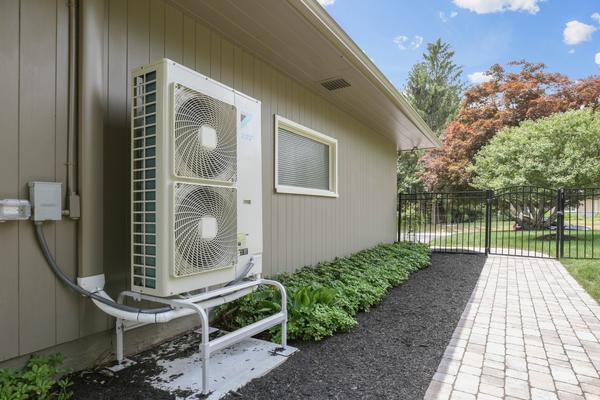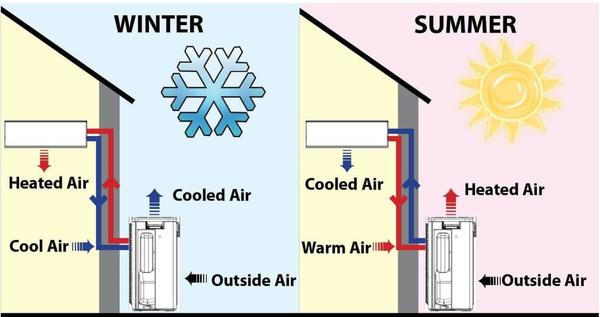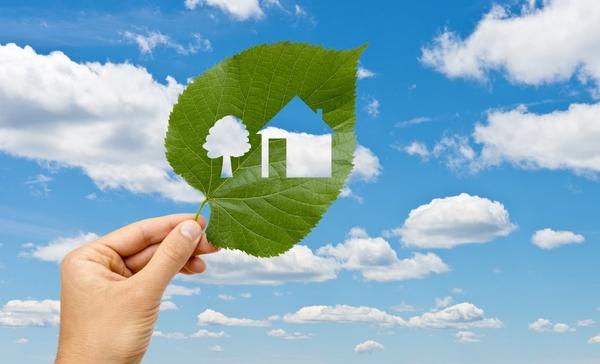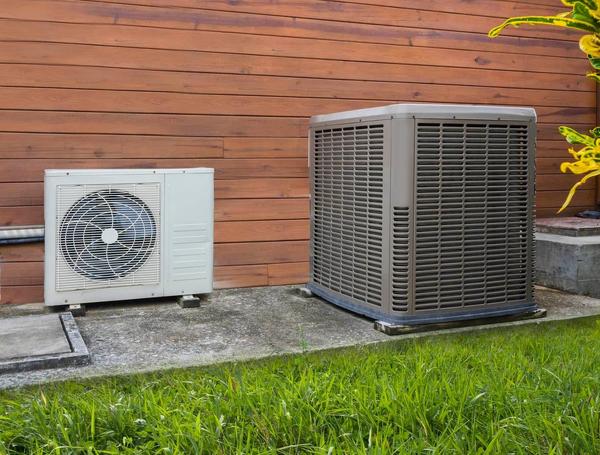Heat Pumps 101: How They Work and Why You Should Consider One for Your Home

Heat pumps are an increasingly popular form of home heating and cooling system that can save you money in the long run while also providing a more efficient and eco-friendly alternative to traditional HVAC systems. But what exactly is a heat pump and how does it work? In this blog post, we'll break down the basics of heat pumps and explain why they are an ideal choice for homeowners looking to upgrade their heating and cooling systems. We'll also discuss the benefits of investing in a heat pump system and how it can help you save money and energy in the long run.
How do heat pumps work?

Heat pumps are efficient, economical and environmentally friendly systems that use natural energy from the ground or air to transfer heat from one place to another. By using refrigerants, heat pumps draw warmth from the outside air and use it to heat your home in winter. In the summer, the process reverses and the pump can act as an air conditioner by taking heat from inside your home and releasing it outside. Heat pumps are able to do this because they move heat from a cooler space to a warmer one, rather than creating new heat. This means that they use less energy than traditional heating and cooling systems, making them a great choice for those looking to save energy costs.
What are the benefits of heat pumps?

Heat pumps are a great option for homeowners looking for a cost-effective, efficient way to heat and cool their homes. Heat pumps provide many advantages over traditional heating and cooling systems, including lower energy costs, increased energy efficiency, and improved indoor air quality.
Heat pumps operate by transferring heat energy from one area to another, rather than generating it themselves. This means that the heat pump will use far less energy than a conventional heating or cooling system, and can save homeowners money on their monthly energy bills. Additionally, heat pumps are more efficient than other heating and cooling systems because they don’t have to work as hard to achieve the same result. This makes them great for larger homes and areas with extreme temperatures.
Another benefit of using a heat pump is that they are extremely reliable and durable. They require little maintenance and can last up to twenty years with proper care and servicing. They also don't produce any emissions, which can help reduce your environmental footprint.
Finally, heat pumps can improve the air quality in your home by filtering out allergens and pollutants. This means that you won't have to worry about breathing in harmful particles or dealing with uncomfortable temperature fluctuations throughout the day.
How much does it cost to install a heat pump?

Investing in a heat pump system can be a great way to reduce your energy costs and help the environment. But you might be wondering, how much will it cost to install a heat pump in my home?
The average cost of installing a heat pump system in Minnesota is between $4,000 and $7,000, depending on the size of your home and the type of system you choose. If you’re upgrading from an existing system, the cost may be lower as you can reuse some of your existing equipment.
In addition to the cost of installation, there are also additional costs associated with running a heat pump. For example, you will need to factor in ongoing maintenance, which typically ranges from $300 to $500 per year. You should also keep in mind that the cost of electricity needed to run the system will likely increase, since heat pumps use more electricity than traditional HVAC systems. By investing in a heat pump system, you can save money on energy costs over the long term and reduce your carbon footprint. It’s important to consider the initial cost of installation as well as ongoing maintenance and energy costs when deciding whether or not a heat pump is right for you.
Are there any government incentives available for installing a heat pump?
If you live in Minnesota and are looking to install a heat pump system, there are government incentives available to help reduce the cost. The Minnesota Department of Commerce offers a number of rebates for homeowners who make energy-efficient upgrades to their home, including installing a heat pump. Depending on the type of system and equipment used, you could qualify for up to $700 in rebates. Additionally, the state offers tax credits for energy efficient improvements such as air-source or ground-source heat pumps. Depending on the amount invested, this credit could be up to 25% of the total cost of the system.
Incentives like these can be a great way to offset some of the costs associated with a heat pump installation and make the upgrade more affordable. It's worth taking the time to explore the options available in your area so that you can make an informed decision about which system is right for you and your budget.
Heat pumps are a great investment for any homeowner looking to increase their energy efficiency, reduce their monthly bills, and lower their carbon footprint. Heat pumps provide consistent and reliable performance, with the potential for significant savings over time, PLUS rebates are available that can help cover the cost. With the right system and a proper installation, heat pumps can be an excellent choice for homeowners looking for a more efficient and environmentally friendly home heating & cooling solution.
Want to learn more? Give our MSP team of HVAC experts a call today.
